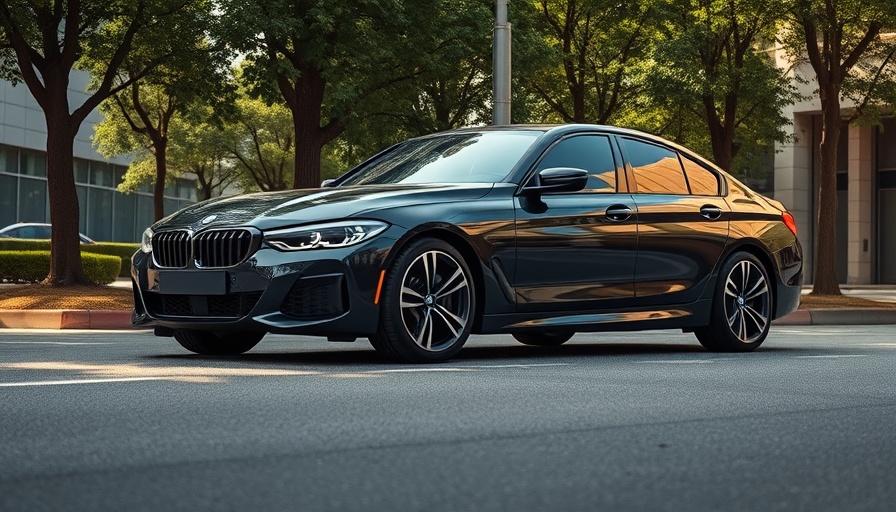
BMW's Groundbreaking Testing of Solid-State Batteries for EVs
In a major advancement for the electric vehicle (EV) industry, BMW has commenced real-world testing of solid-state batteries in its innovative i7 sedan. Teaming up with Colorado-based Solid Power, this project represents the first integration of large-format all-solid-state battery (ASSB) cells into a fully operational BMW vehicle on public roads.
What Makes Solid-State Batteries the Future of Electric Mobility?
Unlike traditional lithium-ion batteries, solid-state batteries utilize solid materials for ion movement, eliminating the risks of leaks and fires associated with liquid electrolytes. This shift promises significant advantages, including greater energy density, enhanced safety, and the potential for reduced production costs. Consequently, these batteries could lead to longer ranges and quicker charging times for EV drivers, effectively transforming the market.
Real-World Testing: A Step Towards Integration
Currently, testing is taking place in the Munich area, where engineers are analyzing how the solid-state modules perform under everyday conditions. This includes managing factors such as cell expansion, pressure, and thermal dynamics within the battery pack. Martin Schuster, BMW’s Vice President of Battery Cell and Cell Module, emphasizes that this innovative approach allows them to push technological boundaries through significant partnerships.
Collaboration and Commitment to Battery Innovation
The partnership between BMW and Solid Power, which began in 2016, has evolved with a formal agreement and a BMW investment in 2021 to further solidify their commitment to solid-state technology. As part of their collaboration, BMW is also set to operate a prototype cell production line in Germany, using Solid Power's materials to enhance in-house expertise.
Looking Ahead: The Competitive Landscape of Battery Technology
With the automotive industry increasingly leaning toward electrification, staying ahead in battery technology is crucial for any manufacturer aiming for long-term success. BMW has invested significantly in battery R&D since 2008, creating the Battery Cell Competence Center in Munich, which consolidates research and development efforts. Interestingly, BMW works with over 300 global partners, from startups to universities, to ensure they remain entrenched in the cutting-edge developments of energy storage.
Broader Implications for the Automotive Industry
The shift towards solid-state batteries aligns with global trends aiming for more sustainable automotive practices. As the largest automobile manufacturers in the world pivot towards greener technologies, this initiative not only shows BMW's commitment to innovation but also highlights its role in a broader transformation in the automotive landscape.
The Role of Solid-State Batteries in Achieving Sustainability Goals
As consumer awareness regarding environmental impact rises, the automotive industry is witnessing a clear shift in demands, with greater emphasis on sustainability. Solid-state batteries, being less hazardous and more efficient, could significantly aid in meeting regulatory standards while attracting environmentally conscious consumers.
Conclusion: The Future of BMW and Electric Vehicles
The initiative to test solid-state batteries in the BMW i7 sedan marks a pivotal point not just for BMW but for the entire EV landscape. With successful implementation, these technologies could redefine electric driving experiences, paving the way for more efficient and sustainable vehicles. As the automotive industry continues to innovate, consumers and manufacturers alike must stay informed about these emerging technologies shaping the future of transportation.
 Add Row
Add Row  Add
Add 




Write A Comment